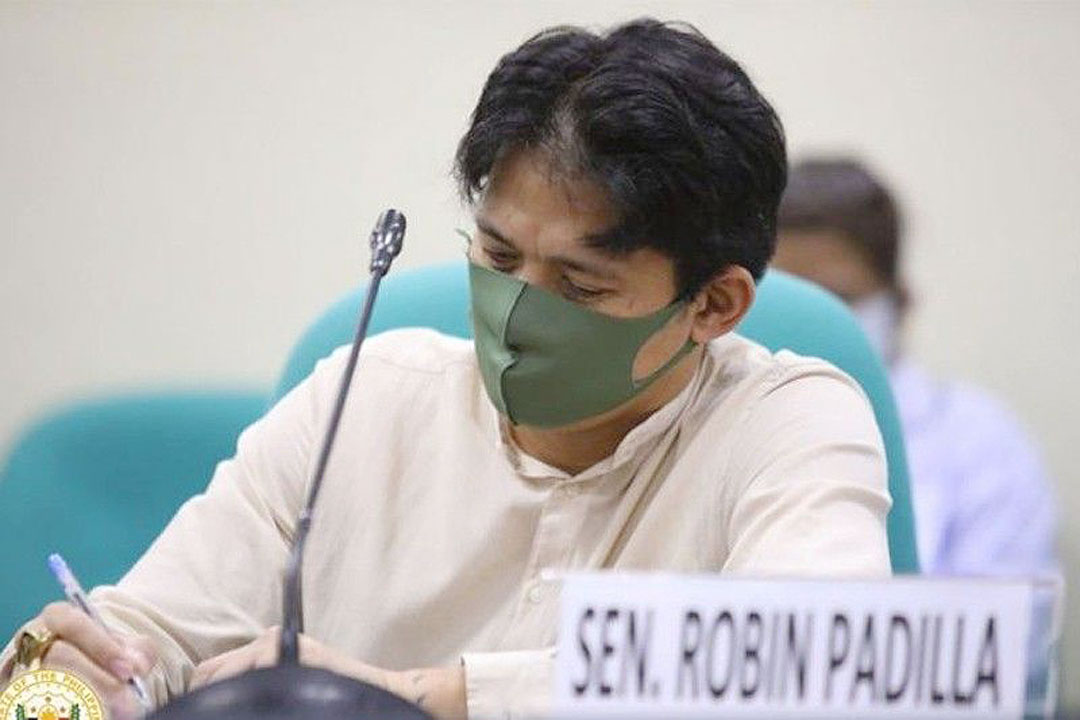Senate resolution seeks term extensions for President, VP, Congress

A SENATOR has filed a resolution seeking term extensions for the President and Vice-President under the 1987 Philippine Constitution, citing the need for policy continuity.
Senator Robin C. Padilla, who heads the committee on constitutional amendments, also wants to increase the number of lawmakers in both Houses of Congress and extend their terms.
“It is imperative to strike a balance between the need for policy continuity, which requires adequate time for lawmakers to fulfill their legislative agenda, and the need to prevent the accumulation of power, which may lead to political entrenchment,” he said in Resolution of Both Houses No. 5.
He also cited the need to synchronize the electoral cycles of the different branches of government “to improve administrative efficiency and enable a more coordinated implementation of government policies.”
Mr. Padilla noted that in 2022, the Philippines ranked 52nd of 167 countries in the Economist Intelligence Unit’s Democracy Index, with political culture, functioning of government and political participation being the most concerning issues.
He also cited historical data from the Asian Development Bank showing that in the past decade, political instability and frequent turnover of elected officials have been identified as major impediments to long-term planning and policy continuity.
Under his proposal, the President and Vice-President will be elected as joint candidates for a term of four years. They may not be elected for more than two terms.
A President who served for two terms will not be qualified to run for any elective positions. Anyone who succeeds the President or Vice-President can only run for these positions once.
Mr. Padilla said term changes for the executive positions “will ensure a balance between leadership stability and democratic continuity.”
“A joint candidacy for the President and Vice-President provides for an electoral landscape that will shift its emphasis from individual personalities to the unified policy agenda and will foster a more strategic and effective governance,” he added.
Mr. Padilla also sought to increase the number of senators to 54 from 24. Of these, 24 will be elected during national polls and 30 will be elected by qualified voters from each legislative region.
Under the proposed changes, senators elected ‘at large’ will have an eight-year term and can only serve for up to two consecutive terms. Regional senators will have a four-year term and can only serve for up to three consecutive terms.
Members of the House of Representatives will have a four-year term compared with three now, and can only serve for up to three consecutive terms, Mr. Padilla added.
All local officials except village chiefs will have four-year terms compared with three now and can only serve for three consecutive terms.
If Congress succeeds in amending the Constitution, the first elections will be held on the second Monday of May 2028, according to Mr. Padilla.
The House of Representatives this week revived Charter change (“Cha-cha”) talks to ease economic restrictions on foreign investors.
Senior Deputy Speaker and Pampanga Rep. Aurelio D. Gonzales, Jr. on Tuesday said a resolution seeking to change the Constitution would be filed next year.
The House in March passed a bill seeking to amend the 1987 Constitution through a constitutional convention. A similar measure in the Senate only reached Mr. Padila’s committee. — Beatriz Marie D. Cruz



